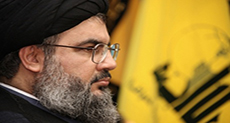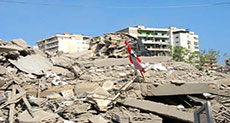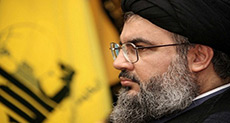
Disillusioned “Israeli” youths opt out of army service after Lebanon war
Source: The Christian Science Monitor, 14-8-2007
Tel Aviv - Dror Mizrachi`s draft profile is a 97. In “Israeli” army lingo, the score means he`s in top physical and mental shape for combat service when he is conscripted next year like most “Israeli” 18-year-olds.
But Mr. Mizrachi is requesting discharge so he can perform public service work with a human rights group. "I said, `Gentlemen, this is my conscience: I don`t believe in weapons, I`m afraid, and I oppose violence.` This is my truth."
Once upon a time, a request like Mizrachi`s could have meant the opprobrium of a society in which the military functioned as “Israel’s” defender, social melting pot, and résumé builder.
But as a greater percentage of “Israelis” is exempt from mandatory military service and as criticism continues over the army`s poor performance last year in the Lebanon war, there has been an erosion in its standing as a paragon of social egalitarianism.
"The army is undergoing very severe strain, in addition to all the issues of training, and efficiency, and command that the army confronted last summer. The crisis that we`re experiencing now in “Israel” is a belated realization that a part of “Israeli” society allowed itself to go slack,`` says Yossi Klein Halevi, a fellow at the Shalem Center in Jerusalem (al-Quds).
The army`s universal draft is based on the ethic that all must risk their lives to defend the country from external threats.
However, according to figures released last month by the army, about 1 in every 4 eligible males is exempted from the compulsory three-year stint in the military. For women, who are required to serve only two years, the exemption figure jumped to 43 percent. In addition, nearly 20 percent leave the army before their terms of service are over.
Army no longer symbolizes solidarity?
Ran Cohen, who serves on the parliament`s foreign affairs and defense committee, says only 10 percent of eligible “Israeli” males got exemptions a decade ago.
"It`s worrisome," says Mr. Cohen, a legislator from the left-wing Meretz Party. "Serving in the army used to be the clearest example of domestic solidarity. The fact that it`s no longer attractive indicates a weakening of “Israeli” society."
Many point out that the army has never been a true representative of “Israeli” society because enlistment isn`t mandatory for Arabs who make up 20 percent of the population. Nearly half of the exemptions go to ultraobservant Jews who have historically been allowed deferrals to study in religious academies but who now make up a larger percentage of the draft-age population.
"The ‘Israel’ Military Forces are turning gradually into an army of only half the people," said “Israeli” Defense (War) Minister Ehud Barak, who recently urged “Israelis” to shun draft dodgers.
One trend that disturbs many “Israelis” is an increase in middle- and upper-class teens – considered the potential leaders and brains of the army – who seek health-related discharges to avoid military service.
"The military for my parents was a monolithic organization" that wasn`t questioned, says Eyal Ben Ari, a Hebrew University sociologist. "There`s a generational impact, which goes along with the fact that the military is being challenged more," he says. "People know more about the military structures, personnel policies, opportunities, and it`s more open for negotiation."
While websites feature tip sheets on how to convince the army bureaucracy to get a deferral, anecdotes of fabricated mental and physical maladies are common.
Youths disillusioned after Lebanon war
In the year since the war with Hizbullah, the army has faced unprecedented criticism for allegedly pushing “Israel” into a battle which the military was not prepared to fight.
Disillusionment from the war spurred more young “Israelis” to think about alternatives to military service, says Maayan Niezma, who runs a support hotline for prospective soldiers considering avoiding service.
"There were several who I spoke with for whom the Lebanon war made a change in their outlook," says Ms. Niezma, who belongs to New Profile, a feminist group that seeks to reduce the influence of the military in public life. "They suddenly understood more things about [the army], and that affected their desire to be part of it."
To be sure, the army still enjoys the highest public approval rating among “Israel’s” public institutions, experts say. According to military statistics, demand for combat assignments remains high, and statistics from the Lebanon war showed high participation from a traditional military bulwark, the children of the left-wing Kibbutzim, who many believed had become alienated from the army.
Mizrachi, who comes from a middle-class Tel Aviv suburb and is active in the left-wing Meretz political party, says the government should institutionalize civilian (settlers) public service as an alternative to the army. But he acknowledges that his parents were less than thrilled with the idea of him not serving. "They would have preferred me to go into the army," he says.
But even Mr. Barak acknowledged when he was chief of staff that the army needs to shed manpower. Despite the public angst over the draft dodging, many in “Israel” say that an army built more on technology than sheer size needs to move from a universal draft to an organization based on career soldiers.
"We need a new way of thinking," says Mizrachi. "For those who are ready for the military system, it should pay them. And those who evade service shouldn`t be considered trash."



